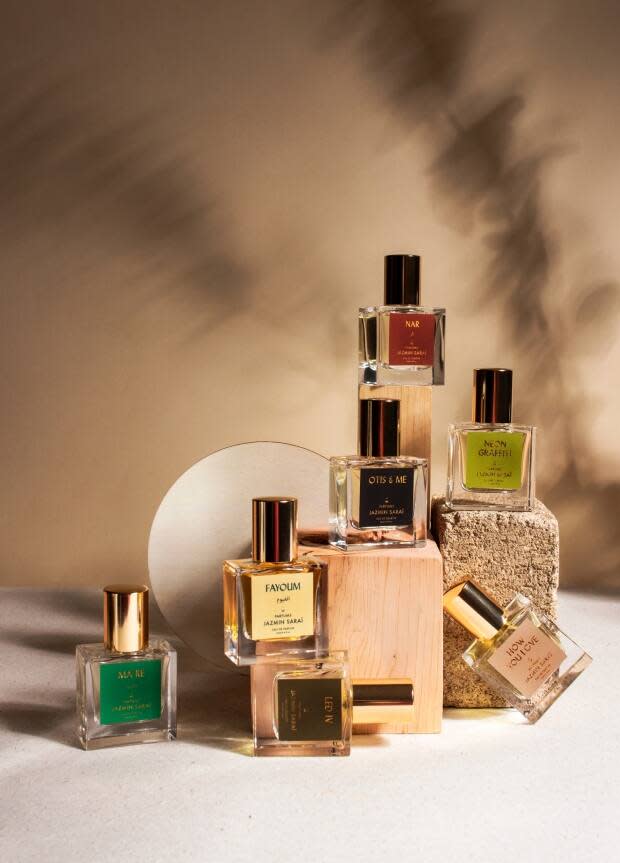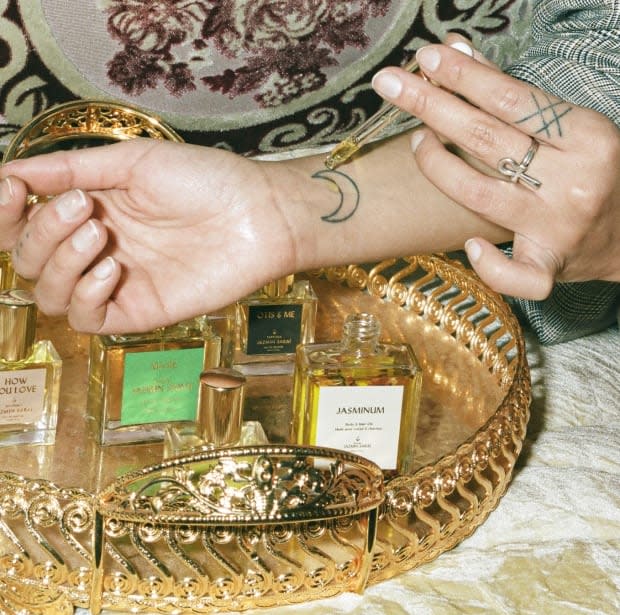Stop using 'Oriental' to describe perfumes, say industry advocates

A group of perfumers and members of the beauty community is calling on the fragrance industry to stop using the word Oriental to describe scents — a term they say is outdated, inaccurate and racist.
According to a petition posted online last week, the fragrance world's categories of "Oriental" and "floriental" (floral Oriental) have "no true olfactive meaning." They were created through a colonial lens of viewing "the Orient" — a term for the East, particularly in relation to Europe — as "sensual, exotic and fetishized," the petition says.
Scents that fall under this category generally have woody, spicy, musky warm notes, such as vanilla, rum, cinnamon, sandalwood and saffron.
"No other industry — not wine, not chocolate, not beer, not tea, not coffee — nobody else uses this term," said Yosh Han, the Los Angeles-based perfumer who launched the petition. "It's basically a fake marketing word."
Han, founder of perfume brand YOSH, called the term an example of "othering" that lumps together more than 50 countries dispersed across North Africa, South and East Asia.
"That just means anyone who's melanated. Then you realize, 'Oh my gosh, this is white supremacy,'" said Han, who also founded Scent Festival during the pandemic, a virtual festival that explores scents and celebrates diversity. "We realized the industry has been stacked against us. It's been primarily Eurocentric."

Century-old term
The use of the word Oriental in perfumery dates to the early 1920s in France with Guerlain's perfume Shalimar, said Dana El Masri, a Montreal-based perfumer who runs her fragrance company Jazmin Saraï.
"[Guerlain] had this idea and concept of the Taj Mahal and India and that story line. It was classified as Oriental. And that's kind of where it began and didn't stop," said El Masri.
The perfume industry has been profiting off of our stories for so long. - Dana El Masri, Montreal-based perfumer
El Masri helped edit the petition's wording and is creating a diversity database for Black, Indigenous and people of colour in the industry.
As an Egyptian-Lebanese woman, El Masri said her image gets "orientalized a lot" through stereotyping. The term Oriental is "misleading, inaccurate, outdated, and absolutely racist," she said.
"I have been called a lot of derogatory Arab-related words since moving to Canada," she said. "I'm very, very passionate about accurate representation and multicultural representation in perfumery … because the perfume industry has been profiting off of our stories for so long."

Jane Daly, Ottawa-based editor of online magazine Daly Beauty and the creator of the Eau De Jane perfume, said ingredients that are typically found in perfumes come from all over the world. Raw vanilla likely originates from Mexico, many spices come from India, and various resins — sticky substances extracted from trees or plants that have varying aromas — from parts of North Africa.
"None of these things could be called Oriental. It's just inaccurate," she said.
Daly said the categorization of other scents from the fragrance wheel, like fresh, floral, and woody, make the use of Oriental even "more glaring."
"You see normal words that describe how a fragrance smells," she said. "And then you see this horrible racist word."
Daly said the suggested term for this category is now "amber" or "ambery," which captures the scents' "cozy and cuddly" notes.
'No one wanted to comment on it'
"From a consumer standpoint, it doesn't make sense. Really, what does Oriental smell like?" said Madelyn Chung, a freelance writer and former beauty editor who founded The RepresentASIAN Project, an online platform that amplifies Asian voices.
After long consultation, we have decided to use our position of influence to provide a more inclusive vocabulary. - Fragrances of the World statement
Chung wrote a piece about the use of Oriental as a perfume category for fashion magazine Flare in 2019, after her editor-in-chief asked her to research the topic.
"It's funny because it didn't even dawn on me as a ... Chinese-Canadian that Oriental was a thing [in this industry]," she said.

While she didn't get much response after initially publishing her piece, Chung said it's exciting to see the issue resurface amid rhetoric around anti-Asian racism.
"When I wrote this, I really didn't think that there would be any change, simply because of the response I received from these big fragrance houses," she said. "No one wanted to comment on it."
CBC News asked several corporations for comment on their stance on using the term.
Luxury brand conglomerate Moët Hennessy Louis Vuitton or LVMH (which houses brands like Guerlain, Bulgari, Christian Dior and Sephora), L'Oréal (which has formulated fragrances with brands like Maison Margiela and Giorgio Armani) and Chanel did not respond.

Fragrances of the World, whose fragrance wheel of scent categories is widely used as a reference for perfumers, issued a statement last week committing to swapping out Oriental for amber starting mid-July.
The company cited "younger people" who feel no connection to the word and critics who've pointed out the term's colonial roots.
"Within the context of perfumery, the term Oriental was never intended to be offensive, but perceptions change," the statement reads. "After long consultation, we have decided to use our position of influence to provide a more inclusive vocabulary."
Han said if the perfume industry wants to stay relevant, it must change the word to an alternative such as amber.
"I implore any brand who wants to stay relevant [to make that switch]," added El Masri, noting that the petition gives major brands six to 12 months to update their language. "It's absolutely doable."

